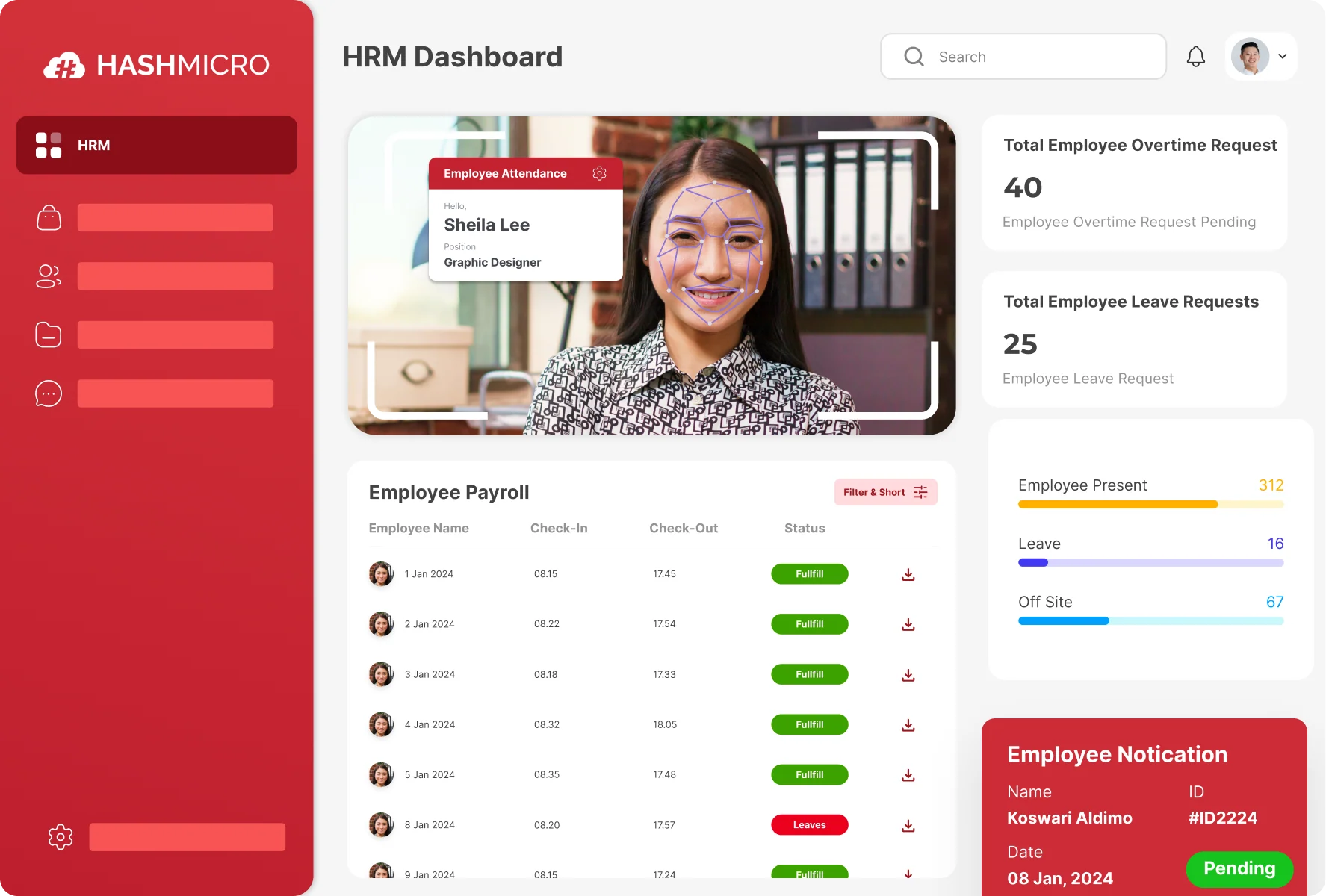You’ve built your business with hard work, but one labor and employment law mistake could cost you everything. Employees filing complaints, penalties stacking up, and unexpected legal battles can drain your time and resources.
The good news is that understanding employment laws can save you from these headaches. Keep reading to learn how to stay compliant and protect what you’ve built.
Key Takeaways
|
Table of Contents
What is Employment Law?

Employment law refers to the set of rules and regulations that define the rights and responsibilities of both employers and employees. It establishes fair labor practices, ensures workplace safety, and protects employees from discrimination and exploitation.
The main goal of employment law is to create a fair and lawful work environment where businesses operate ethically while employees receive proper treatment. It covers aspects like wages, benefits, workplace conditions, and dispute resolution to maintain balance in the workplace.
Why Is Employment Law Important?
Employment law plays a vital role in safeguarding employees’ rights, ensuring they are treated fairly and compensated properly. It prevents issues like workplace discrimination, wage exploitation, and wrongful termination, giving workers job security and peace of mind.
For business owners, understanding and complying with employment laws reduces legal risks, fosters a positive work environment, and improves employee satisfaction. Following labor regulations also helps companies avoid financial penalties and lawsuits.
Overview of Employment Laws in the Philippines
The Labor Code of the Philippines serves as the backbone of employment laws in the country, setting the standards for fair labor practices. It covers everything from minimum wage and working conditions to termination policies and dispute resolution, ensuring a fair and just workplace.
According to DOLE, compliance with these laws is essential to maintaining healthy employer-employee relationships and avoiding legal repercussions. The Department of Labor and Employment (DOLE) oversees the implementation of labor laws and ensures that businesses follow employment regulations.
It provides mediation services for disputes, enforces workplace safety, and assists employers in understanding their legal responsibilities. Employers who fail to comply may face penalties, lawsuits, or even business closures, making it critical to stay updated with labor law changes.

Key Aspects of Employment Law in the Philippines

From hiring employees to ensuring workplace safety and fair compensation, Philippine labor laws provide clear guidelines that employers must follow. Below are the most important areas of employment law that every employer should be aware of:
1. Recruitment and hiring regulations
Employment contracts define the terms and conditions of employment, including job responsibilities, compensation, and termination policies. Employers must provide clear and legally compliant contracts to avoid misunderstandings and disputes.
Here are the key recruitment and hiring regulations employers must follow:
- Employment contracts must be written and include terms such as salary, benefits, and conditions of termination.
- Probationary employment allows companies to evaluate an employee’s performance before granting regular status.
- Regular employment provides workers with job security, mandatory benefits, and protection under labor laws.
- Equal employment opportunities ensure that hiring practices are free from discrimination based on gender, age, or background.
- Pre-employment requirements must align with labor laws and should not impose unnecessary financial burdens on applicants.
A strong hiring process ensures that both employers and employees start on the right foot. Proper employment contracts and fair hiring practices prevent legal issues and foster a professional work environment.
2. Wages, benefits, and working conditions
The minimum wage in the Philippines varies by region to ensure fair compensation based on the cost of living. Employers must comply with government wage orders to avoid penalties and legal action.
Workers are entitled to several mandatory benefits and fair wage policies, including:
- Overtime pay must be given for work exceeding eight hours, with additional compensation for night shifts and rest days.
- Holiday pay ensures that employees receive extra compensation on public holidays, whether they work or not.
- Social benefits contributions such as SSS, PhilHealth, and Pag-IBIG are required to secure employees’ healthcare and financial stability.
- Leave benefits like sick leave, vacation leave, and service incentive leave help employees maintain work-life balance.
- Non-wage benefits such as meal allowances, bonuses, and incentives may be provided to enhance employee welfare.
Ensuring fair wages and benefits is essential to keeping employees motivated and reducing turnover. Compliance with labor laws protects businesses from disputes and improves overall workforce morale.
3. Health, safety, and workplace standards
Employers must follow the Occupational Safety and Health Standards (OSHS) to maintain a safe work environment. These regulations protect employees from workplace hazards and promote well-being.
Here are the main workplace safety requirements for employers:
- Providing protective equipment for employees working in hazardous environments.
- Conducting safety training to educate workers on proper workplace protocols and emergency procedures.
- Ensuring proper ventilation and sanitation to maintain a clean and healthy workspace.
- Regular safety inspections to identify and correct potential hazards.
- Providing medical assistance and health programs to support employee well-being.
A safe workplace leads to higher productivity and fewer accidents. Employers who prioritize safety demonstrate care for their employees and avoid costly penalties for non-compliance.
4. Employee rights and protections
The Anti-Discrimination Laws in the Philippines prevent unfair treatment based on gender, age, religion, or disability. Employers must ensure inclusive hiring and workplace policies.
Employees are protected against labor violations through:
- Laws against workplace discrimination to promote equal opportunities for all employees.
- Protection from unjust termination ensures employees are dismissed only for valid reasons.
- The right to unionize allows employees to form or join labor unions for collective bargaining.
- Legal recourse against unfair labor practices enabling employees to file complaints.
- Whistleblower protections encourage employees to report illegal or unethical workplace behavior without fear of retaliation.
Protecting employee rights leads to a more harmonious workplace and helps businesses avoid legal issues that can damage their reputation.
5. Termination and resignation laws
Termination laws ensure that employees are dismissed fairly and in accordance with legal guidelines. Employers must follow due process to avoid wrongful termination claims.
Key regulations for termination and resignation include:
- Just cause termination applies when an employee commits serious misconduct or neglects job duties.
- Authorized cause termination covers business-related reasons such as redundancy or company closure.
- Separation pay may be required for employees dismissed under authorized causes.
- Resignation notice period ensures a smooth transition before an employee leaves a job.
- The final pay settlement should be given within a reasonable time after an employee has exited.
Understanding termination laws helps businesses manage workforce transitions effectively while maintaining compliance with labor regulations.
Additional Employment-Related Laws in the Philippines
Employment laws in the Philippines go beyond standard labor policies to ensure fair treatment, workplace safety, and employee rights. Understanding these additional regulations helps businesses foster a more secure and inclusive work environment.
- Anti-Sexual Harassment Act of 1995 – This law protects employees from harassment in the workplace. Employers must implement policies and provide training to prevent misconduct, ensuring a respectful and safe work culture.
- Telecommuting Act – This law promotes remote work arrangements, ensuring that employees who work from home receive fair treatment and benefits similar to on-site workers. Employers must establish clear agreements and provide equal opportunities for telecommuters.
- Data Privacy Act of 2012 – Employers must protect employee data under this law to prevent unauthorized use of personal information. Proper data handling practices, including security measures and consent policies, are essential for compliance.
- Maternity and Paternity Leave Laws – Mothers are entitled to 105 days of paid maternity leave, while fathers receive 7 days of paternity leave. These benefits support working parents and promote family welfare, encouraging a work-life balance.
By adhering to these employment-related laws, businesses create a workplace that prioritizes employee rights and well-being. Complying with these regulations not only prevents legal risks but also improves employee morale and productivity.
Ensure Compliance with Philippine Employment Laws Using HashMicro’s HRM
 Managing compliance with employment laws in the Philippines can be complex, but HashMicro’s HRM software simplifies the process. With automated tools and centralized record-keeping, businesses can ensure they meet labor regulations while focusing on growth and productivity.
Managing compliance with employment laws in the Philippines can be complex, but HashMicro’s HRM software simplifies the process. With automated tools and centralized record-keeping, businesses can ensure they meet labor regulations while focusing on growth and productivity.
- Automated Payroll Processing ensures accurate computation of wages, overtime pay, and statutory contributions like SSS, PhilHealth, and Pag-IBIG.
- Employee Record Management securely stores and organizes employee contracts, work history, and compliance documents in one accessible platform.
- Leave and Attendance Tracking helps employers comply with labor laws by managing employee work hours, leave entitlements, and overtime.
- Regulatory Compliance Reports generate real-time reports to ensure businesses meet DOLE and government-mandated employment requirements.
- Performance and Appraisal Management ensures a structured evaluation process to justify promotions, terminations, and employee benefits, aligning with legal standards.
Using HRM software, such as HashMicro, can simplify compliance and avoid legal issues. By leveraging automated processes, companies not only ensure accuracy but also save time, reduce errors, and foster a legally compliant work environment.
Conclusion
Employment law in the Philippines sets clear guidelines to ensure fair treatment, workplace safety, and employee protection. Understanding and following these laws helps businesses create a compliant, ethical, and legally secure working environment. Employers prioritizing compliance avoid costly disputes and build a strong, reputable company.
HashMicro’s HRM software makes compliance easier by automating payroll, managing records, and generating compliance reports. Businesses can reduce errors, save time, and ensure legal accuracy with an integrated system. Try the free demo today and experience how HashMicro simplifies employment law compliance for your business!

Frequently Asked Questions
-
What is the Employment Act in the Philippines?
The Employment Act in the Philippines refers to the Labor Code and related labor regulations that protect workers’ rights, set workplace standards, and ensure fair treatment for all employees.
-
What is article 282 of the dole labor code?
Article 282 outlines just causes for terminating an employee, including serious misconduct, dishonesty, or breach of contract. Employers must follow proper procedures to ensure that dismissals are legally compliant and fair.
-
What are the 7 basic employment rights in the 1987 constitution?
The 1987 Constitution of the Philippines guarantees just wages, safe working conditions, security of tenure, and freedom from discrimination. Workers are also entitled to form unions, engage in collective bargaining, and benefit from humane work standards.




































